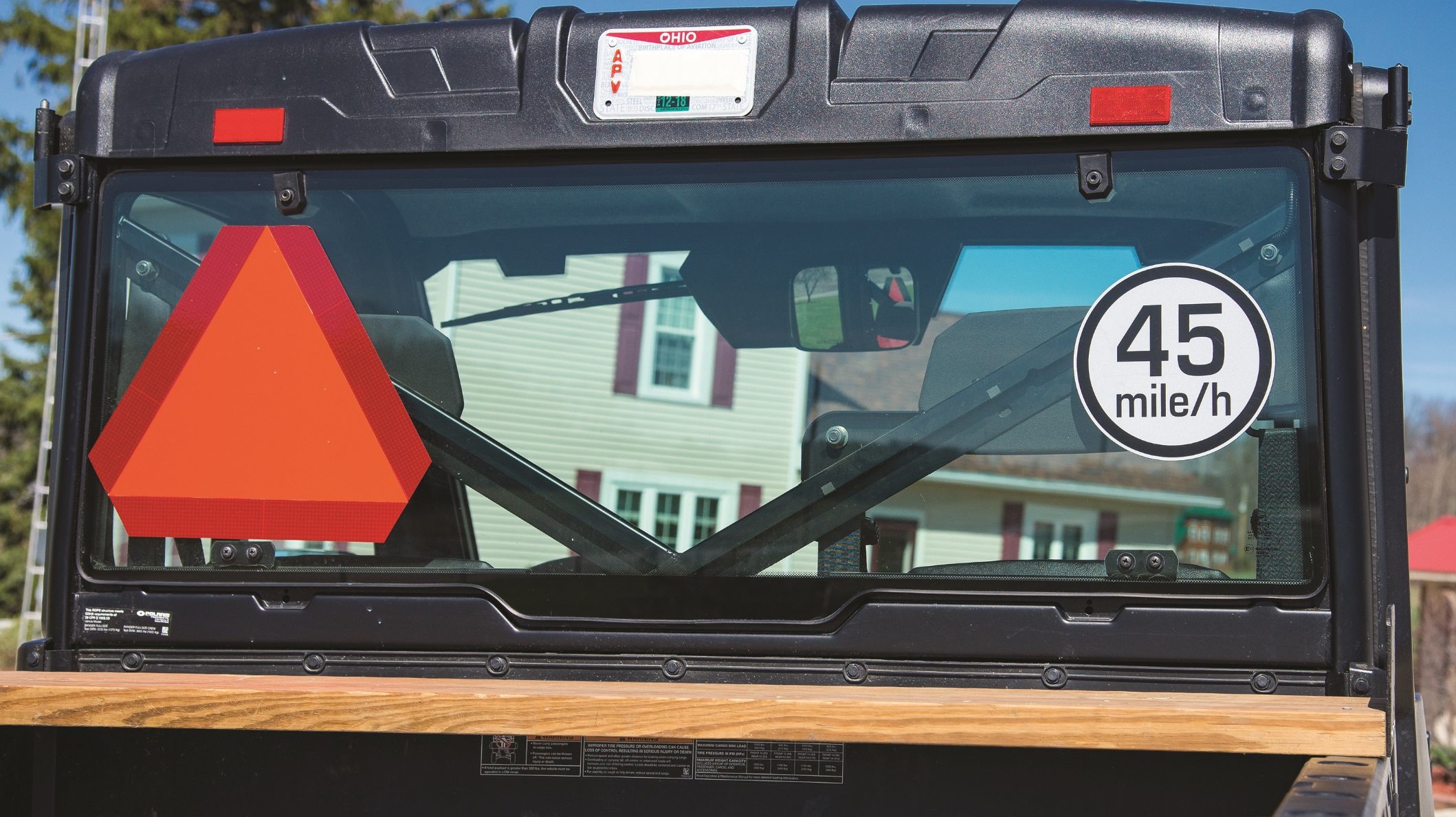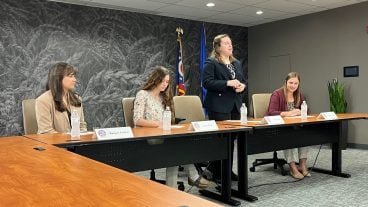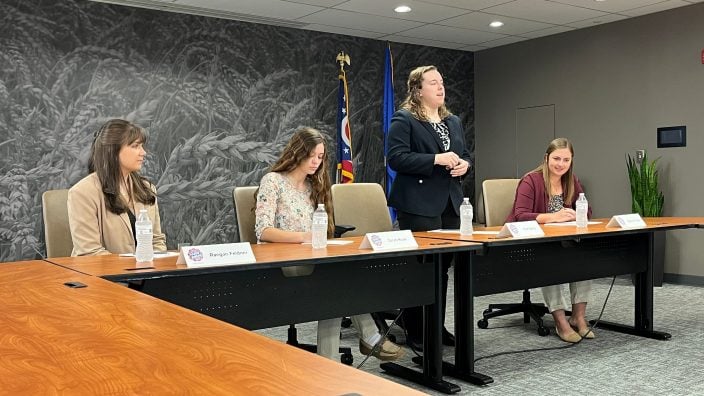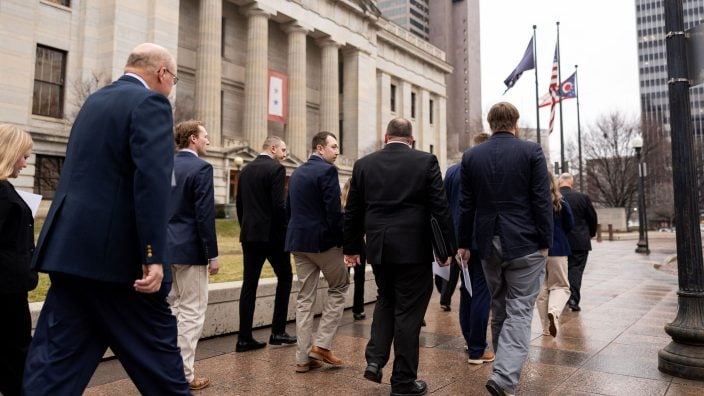Applications for Ohio Farm Bureau Health Plans now available
Members have three ways to apply: contacting a certified agent, calling 833-468-4280 or visiting ohiofarmbureauhealthplans.org.
Read MoreTom Cooke was always looking over his shoulder.
The Richland County Farm Bureau member lives by a highway and was unclear on whether or not he could drive his utility vehicle on the roadway in the course of his usual farm work.
“Many of our members have farms that are separated by roads like these, making it illegal for them to use their utility vehicles for farm work,” said Tony Seegers, OFBF director of state policy.
That all changed when OFBF was successful in having two amendments included in the state’s overall transportation budget. Gov. John Kasich signed the transportation budget into law at the end of March.
The first amendment allows farm utility vehicles that display a slow moving vehicle emblem to travel on a road with a speed limit above 35 mph if going from farm to field in the course of agricultural production. Freeways are excluded.
That is exactly the clarification Cooke was seeking when he contacted Leah Curtis, OFBF policy counsel.
“After doing much research on the Ohio Revised Code, I saw many grey areas that were not in black and white and subject to different interpretations (about the issue),” Cooke said. “I then contacted Leah Curtis, and she agreed.”
While it takes time to get changes implemented at the state level, Cooke said the end result is worth the wait. It didn’t come a moment too soon, either.
“I contacted the large dealer whom I purchased my Ranger from and talked to him about this (change),” Cooke said. “He said that my timing was great, as he spent a lot of time that same day on the phone contacting sheriff departments concerning the issue. He said that he had customers, or potential customers, that were asking about this and would like clarification.”
Ohio Farm Bureau was also successful in getting another amendment added to the state’s transportation budget aimed at helping farmers and rural residents.
That amendment requires notification of proposals to create “limited access” highways so farmers are aware of changes and have time to plan alternate routes. The Ohio Department of Transportation is now required to publish a notice in the local newspaper once a week for two weeks, notify the state’s farm organizations electronically four weeks before the change and take comments from the public on any proposed changes.
“Our members have found that one day they are using a road to get to their fields and the next day they see a limited access sign prohibiting farm machinery. These notifications will be helpful for rural residents who are driving farm vehicles that can’t go down limited access highways,” Seegers said.
Cooke believes the changes couldn’t have been made without the help of Ohio Farm Bureau.
“Now we can drive down the road and not be greatly concerned about different law enforcement interpretations,” he said. “This is huge for farmers across the state who had the same concerns as me. This could not have been accomplished had it not been for Farm Bureau’s involvement.”



Members have three ways to apply: contacting a certified agent, calling 833-468-4280 or visiting ohiofarmbureauhealthplans.org.
Read More

Collegiate Farm Bureau serves as a connection to current industry professionals and equips the next generation with the essential tools and resources needed to excel in their careers.
Read More

Ohio Farm Bureau members met one-on-one with state legislators and staff to discuss policy priorities impacting Ohio’s farms and rural communities.
Read More

Legacy nutrient deductions enable new farmland owners to claim deductions on the nutrients within the soil on which healthy crops depend.
Read More

Farmers, agribusinesses and community members are encouraged to nominate their local fire departments for Nationwide’s Nominate Your Fire Department Contest through April 30.
Read More

Introduced by Sen. Paula Hicks-Hudson, SB 120 would establish the Urban Farmer Youth Initiative Pilot Program.
Read More

Gases, vapors, and fumes can all create risk. How can we measure and protect ourselves from them?
Read More

The Ohio Farm Bureau’s Young Agricultural Professionals State Committee has named its 2026 leadership and the individuals who will be serving on the state committee for 2026-2028.
Read More

The Ohio Farm Bureau Foundation has multiple scholarships available to Ohio students from rural, suburban and urban communities who are pursuing degrees with a connection to the agricultural industry.
Read More

With 100% bonus depreciation now permanent, farmers can deduct the full cost of a new agricultural building in the year it’s placed in service.
Read More